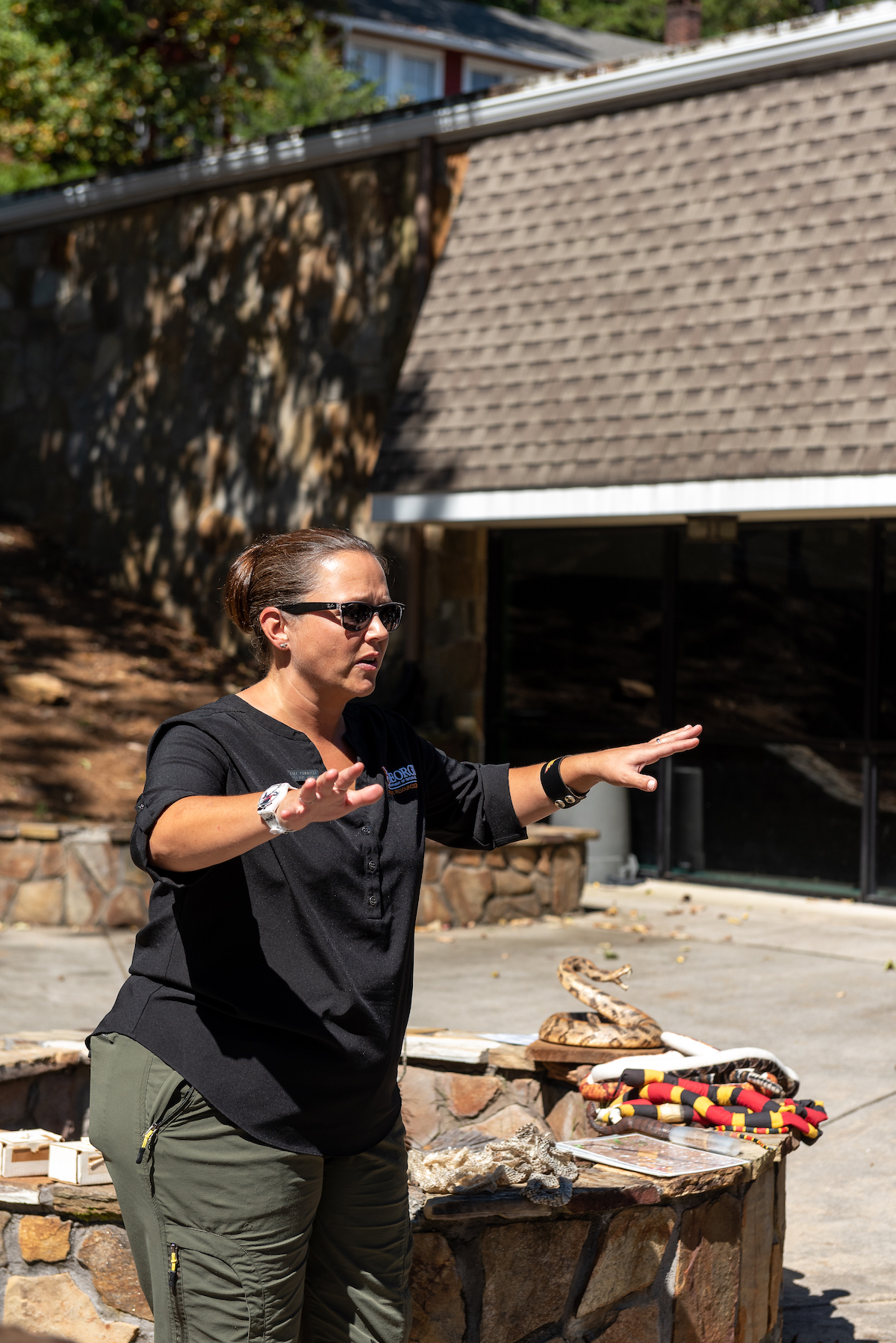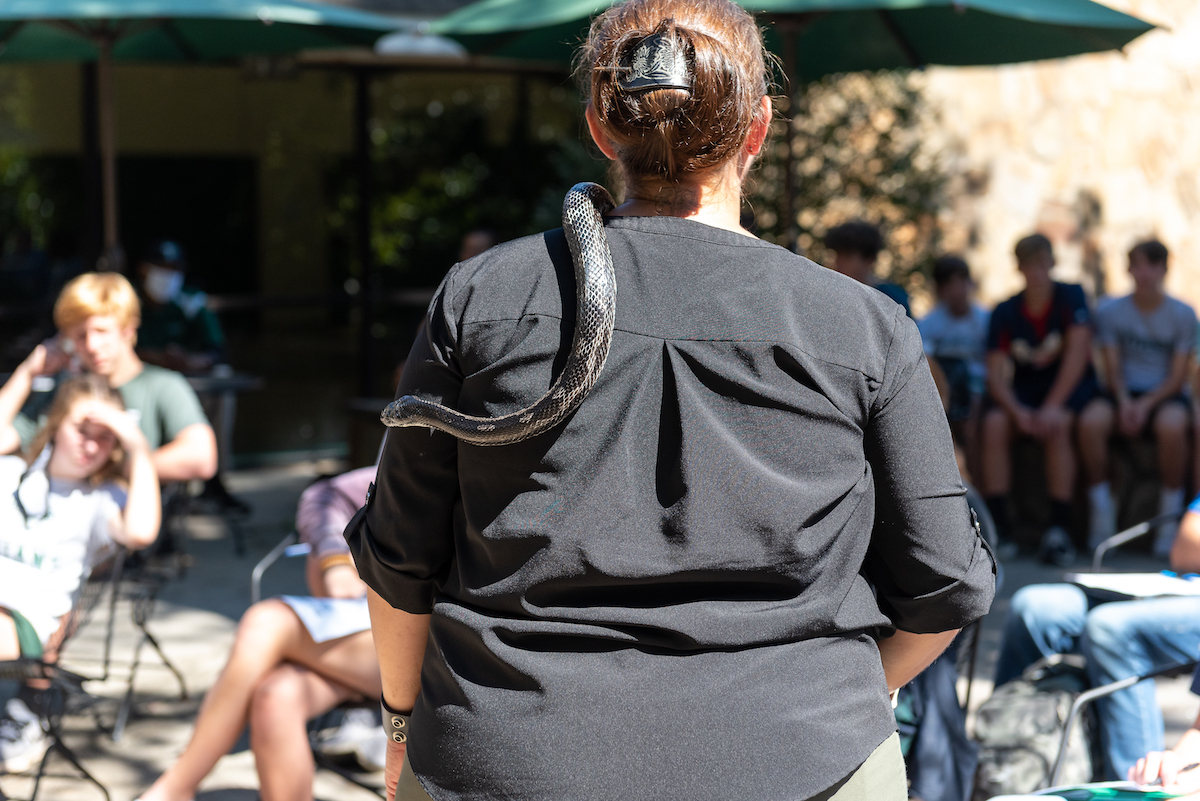WASHINGTON (GA Recorder) — The massive economic policy package Democrats are trying to muscle through Congress could open the door to free community college for undocumented immigrants.
But that lifeline for many people now denied access to higher education could also reignite controversies in Republican-leaning states over immigration and federal overreach.
The provision on immigrants was included in a plan drafted by House Democrats to provide two years of tuition-free community college for students. The proposal calls for the federal government to dole out $111 billion to states from 2023 to 2028. The states would use that money to cover tuition for community college students.
To receive the money, though, states could not deny the tuition-free benefits based on “citizenship, alienage, or immigration status.”
That would run afoul of current laws in several states.
Alabama, Georgia and South Carolina prohibit unauthorized immigrants from enrolling in at least some of their public universities and colleges.
Missouri, New Hampshire, North Carolina, Tennessee and Wisconsin bar undocumented students from receiving in-state tuition. Other states impose other restrictions on tuition benefits for undocumented students.
Helping undocumented students develop skills and earn academic degrees has the same benefits for the larger economy as helping other community college students, said Miriam Feldblum, the executive director of the Presidents’ Alliance on Higher Education and Immigration, a group of more than 500 higher education leaders.
“The reason this is a big deal,” Feldblum explained, “is that, up until now, undocumented students have not had access to federal financial aid. They have not been included in federal financial aid or loan programs. They’ve not been included in Pell Grants.”
“But now there’s a new program being considered for free community college tuition, and the administration is recognizing from the very start of this program that there should not be arbitrary barriers set up against undocumented students,” she said.
GOP blowback?
Undocumented students make up about 2 percent of all college students in the country, but Census data doesn’t indicate how many are in community college or other undergraduate institutions.
Still, the Democrats’ idea could face blowback from conservatives.
U.S. Sen. Tom Cotton, an Arkansas Republican and outspoken opponent of expanding benefits to undocumented immigrants, criticized the move already to Fox News.
“Illegal immigrants skipped the line and broke our laws—they should not be rewarded with free tuition,” Cotton said, according to Fox. “But Democrats want to use your money to pay for them to go to college.”
“That’s not fair, and it will only incentivize more illegal immigration,” he added.
The community college plan may not happen, though, since everything about the Democrats’ proposals is up in the air at the moment.
Democratic lawmakers are fighting over the size of the social spending package, with demands ranging from $1.5 trillion to $3.5 trillion over the next decade. With such wide disagreement, almost any part of the package could end up being left out of the final deal.
But the sweeping social spending plan is President Joe Biden’s top legislative priority. Also, first lady Jill Biden is a community college professor, increasing the likelihood that at least some community college component will be part of an agreement.
Pell Grants and more
The U.S. House Education & Labor Committee developed a blueprint last month for what community college aid could look like.
The education panel would allow many immigrants to qualify for Pell Grants. The proposal specifically lets Deferred Action for Childhood Arrivals, or DACA, recipients (often called “Dreamers”), immigrants who have temporary protected status and others who have been granted deferred enforced departure be eligible for federal financial aid.
Second, it would only let states get federal money to pay for free community college tuition if those states allow undocumented students to go to community college for free, too.
Congressional Democrats hope states will sign on to the free community college idea because, initially, the federal government would pay virtually the full tab.
Some costs would slowly shift to the states, though, with the state share hitting 20 percent in 2027-2028.
The structure of the grants, in other words, is remarkably similar to the framework that congressional Democrats have relied on to entice states to expand their Medicaid programs under Obamacare.
Yet 12 states, concentrated in the South, have resisted calls to expand Medicaid despite the generous financial incentives. Many of those same states have also put restrictions on tuition benefits for undocumented college students.
Georgia is one of them.
Dalton Republican state Rep. Kasey Carpenter introduced bills in recent legislative sessions to extend in-state tuition to DACA recipients to cut their costs to attend Georgia colleges. But the GOP-controlled Legislature stalled his legislation before it reached a floor vote.
“They pay almost three times the price, so it’s tough,” Carpenter said in arguing for the 2021 version of his legislation in January. “I mean, they’re taking one or two classes at a time instead of taking a full load, and then they get to a point where they realize that they’ll be in school forever, so they get disgruntled and move on.”
“It’s a workforce development issue,” he added. “I think we’ve got an opportunity to keep kids that we’ve already invested in through K-12 education, keep them continuing their education, make them more valuable workers, more valuable taxpayers.”
Nationally, education advocates have largely supported the efforts to help immigrants attend community college.
Martha Parham, the senior vice president for public relations for the American Association of Community Colleges, said giving undocumented students a chance to go to community college would boost their productivity and earnings, and that would benefit the regional economy.
Making tuition free would boost those benefits, she said. “Our students are older, with an average age of 28. The huge majority of them are working. Whatever we can do to remove barriers for them to complete their education… would be an investment in the nation’s middle class.”
Feldblum, from the group of college presidents, said state programs have already shown those benefits.
Many states now allow undocumented students to receive in-state tuition. Meanwhile, some, but not all, state-level “promise” programs that provide free tuition for community college allow undocumented students to participate.
Programs in California, Delaware, Maryland, Nevada, New Jersey, New York, Oregon, Rhode Island and Washington state include coverage for undocumented students.
“When [undocumented students] have been included in in-state tuition programs and promise programs, they have proved their worthiness and their economic value,” Feldblum said.
Several states have only extended in-state tuition and other benefits to DACA recipients—people who came to the country as children and attended U.S. schools—but that leaves out a growing number of immigrants, Feldblum noted.
To qualify for DACA, students have to show they have been in the country since June 15, 2007. That is now more than 14 years ago. A federal court has blocked the Biden administration from expanding DACA any further. So many younger students who are entering college now don’t qualify for DACA.
More than in-state tuition
Another benefit of the free community college program, which is sometimes referred to as America’s College Promise, is that it would go beyond just offering students in-state tuition.
“In states that have in-state tuition, that’s still largely inaccessible, because college is not affordable to folks who can’t get financial aid,” said Wil Del Pilar, the vice president of higher education policy and practice for The Education Trust. “Undocumented students don’t qualify for federal aid, and in some states, they don’t qualify for state aid, either.”
Del Pilar said the free community college program could be the “biggest shift in higher education since 1965,” when the Higher Education Act first passed.
But Del Pilar, who previously worked in Pennsylvania state government, cautioned that states might opt out of the free community college program for financial reasons that have nothing to do with immigration policy.
The House Democratic proposal requires states to meet certain financial thresholds for supporting higher education, and those could be tough to attain for states that have not spent a lot of money supporting public colleges and universities.
Vermont, in fact, would have to nearly double its higher ed spending. South Dakota, meanwhile, would have to bump up its spending by 50% and Pennsylvania would have to increase it by 41%, according to an analysis by the Century Foundation.
“It is difficult to predict whether state legislators and governors will opt in or out of [the free community college plan] in the same way they did for Medicaid expansion, but Congress should consider an option for covering a higher share of costs in states such as these to incentivize participation,” Peter Granville of the Century Foundation wrote.
Del Pilar said the better solution might be a universal program for community college tuition. That would benefit not just undocumented immigrants, but other students that struggle to pay for college, too.
It doesn’t make sense, he said, that students in California would be able to take advantage of free tuition and maybe even financial aid to pay for non-tuition expenses, while students in Georgia are left out of the program completely.
But House Democrats, Del Pilar said, are working with the state-based system of higher education with their proposal. “The House is using incredible leverage to create access,” he said. “To me, it’s a way to encourage states to move in the direction of fairness.”

















Why there’s such an impasse in Congress: Some questions and answers
WASHINGTON (GA Recorder) — Congress may have kept the federal government operating with an 11th-hour flurry of votes on Thursday, but several key pieces of the Democratic agenda remain in limbo.
Here are some questions and answers on where negotiations stand with two massive Democratic-drafted bills — and the status of other looming challenges for federal lawmakers:
What are the two bills?
President Joe Biden has pushed for Congress to approve two sweeping proposals.
One is a $1 trillion measure to pay for “traditional” infrastructure projects, like upgrades to roads, bridges and transit systems.
The second is a $3.5 trillion bill to expand what Biden has dubbed “human infrastructure.”
That latter proposal would expand a range of education, health care and other programs in the nation’s social safety net, as well as boost U.S. efforts to deal with climate change.
That proposal has been crafted through the so-called reconciliation process, which would allow Democrats to power it through the evenly split Senate with just their 50 votes instead of 60.
Why are both measures stalled?
Because moderate and progressive Democrats can’t agree on which proposal should be voted on first.
And because two Senate Democrats remain opposed to the $3.5 trillion price tag of the social safety net legislation.
The traditional infrastructure bill has some bipartisan support, but it has been viewed skeptically by progressive Democrats, who fear that it will pass and the larger, more controversial social programs bill will be left behind.
Progressives have called for Senate action on the social programs bill before taking a vote in the House on traditional infrastructure.
That hasn’t happened because two Democrats, Sens. Joe Manchin III of West Virginia and Kyrsten Sinema of Arizona, have balked at the $3.5 trillion price tag, leading to ongoing negotiations over potentially narrowing that bill.
Meanwhile, moderate Democrats have pushed for moving ahead with approving the infrastructure bill, expressing frustration that a proposal that does have some across-the-aisle support can’t head to the president’s desk.
Was there a deadline this week to pass the bills?
Yes and no.
After a revolt by a handful of centrist House members, House Speaker Nancy Pelosi, (D-Calif.), had promised to hold a vote on the traditional infrastructure bill by Sept. 27.
A House vote was pushed back to Thursday, Sept. 30 — the day before the federal authorization for surface transportation programs included in that bill were set to expire. But lacking support, Pelosi again punted on a transportation vote.
What’s the ramification of not renewing those transportation programs?
Federal highway and transit funding, which is funded outside the normal government spending process, did expire at midnight Thursday. That means nearly 4,000 Department of Transportation employees began furloughs Friday morning.
Are there other effects of a delay for transportation funding?
It freezes payments from the Highway Trust Fund, which go to state departments of transportation, local planning organizations and transit agencies.
Federal funding makes up about 26% of total state transportation budgets, according to the American Association of State Transportation and Highway Officials, an advocacy group for state transportation departments.
The federal agencies still can honor grants made before Thursday, and most construction probably won’t be affected.
But if the situation drags on, federal payments to states and local governments would be reduced. An August memo from the Federal Highway Administration said reduced payments could begin as early as Oct. 8.
The shutdown “halts work on vital transportation infrastructure around the country,” Jim Tymon, the executive director for AASHTO, said in a Friday statement.
So what happens now?
The House appears likely to pass a 30-day extension of the transportation authorization that expired Thursday night, separate from the big infrastructure bill.
If the House passes that extension and no senator objects, that would allow federal DOT employees to return to work while lawmakers work out a long-term authorization, possibly as part of the larger roads-and-bridges bill.
What about the U.S. debt limit?
That’s still a looming problem that federal legislators must address. The latest projections suggest that the federal government will hit its borrowing limit by Oct. 18.
Republicans have maintained that they will not assist the Democratic majorities in each chamber in raising the debt limit.
And what about a federal spending plan for the rest of the fiscal year?
That’s also on the to-do list.
The continuing resolution passed ahead of the Sept. 30 deadline and signed by Biden late Thursday only allows agencies to maintain their current spending levels through Dec. 3.
Keeping the federal government running past that date will require further action from Congress.